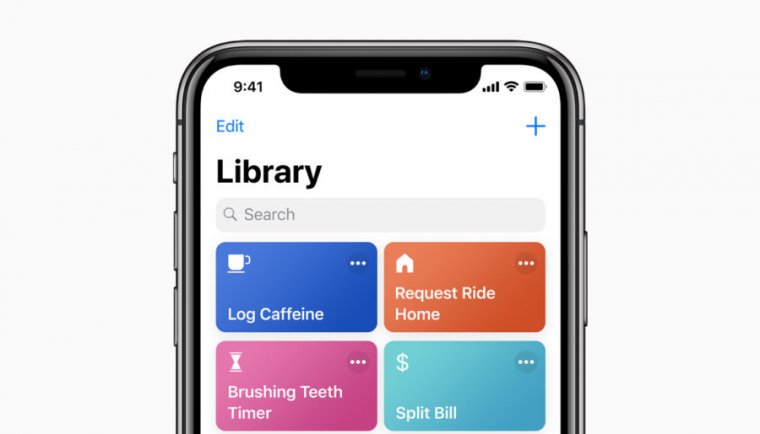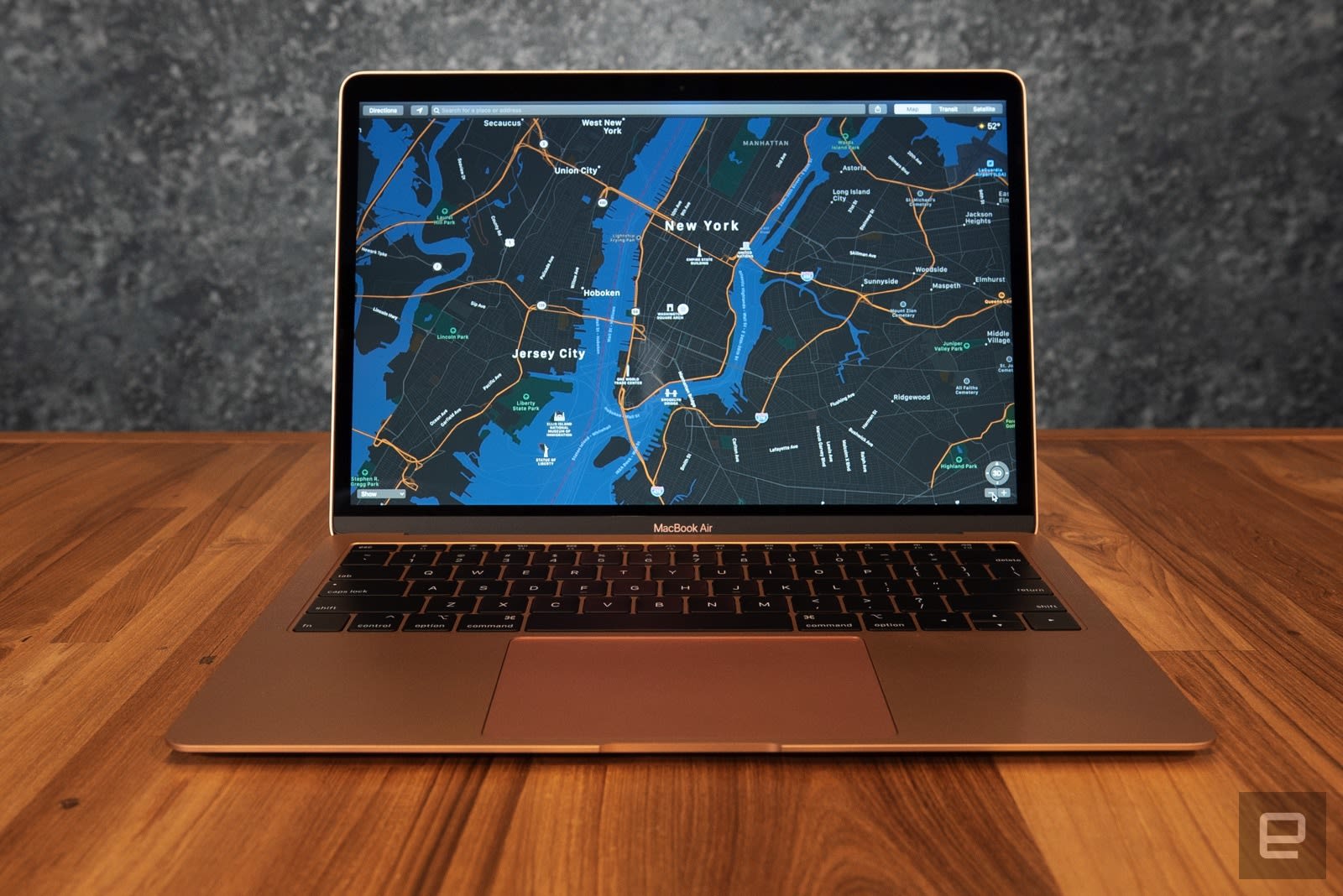
According to a report at 9to5mac citing people familiar with Apple’s plans, several iOS features will come to the Mac in macOS 10.15.
First and foremost among these is Shortcuts, the automation application that Apple built out of its acquisition of Workflow. The app, support for which was introduced in iOS 12, allows iPhone and iPad users to define steps for their devices to perform when they deliver certain user-definable Siri voice commands, tap user-created home screen icons, and so on.
Shortcuts is tightly integrated with Siri, and it was positioned by Apple as a way to make Siri much more powerful than it has been previously. Third-party app developers could develop their own Shortcuts and accompanying Siri commands that could be accessed across the operating system.According to the report, Shortcuts will be supported in the next version of macOS, but as with iOS, it may require users to download an application not included with the OS by default in order to create custom Shortcuts.
Further, the report suggests that Shortcuts will work only with Marzipan apps. Marzipan is Apple’s ongoing project to make development of apps that work across both iOS and macOS easier. Last year’s major macOS release, 10.14 Mojave, included a few Apple-made apps using Marzipan like Apple News and Stocks, but it has not been made widely available to third-party developers yet.
Below: Images and examples from Shortcuts in our iOS 12 review.
-
When you first open Shortcuts, you're greeted with an empty list of your created Shortcuts and the option to either create one or navigate to the gallery to discover pre-made ones.Samuel Axon
-
This is the gallery. It looks a bit like the App Store.Samuel Axon
-
You can drill down further for recommended Shortcuts on certain aspects of using your phone. Here: Music.Samuel Axon
-
Going back to the first screen, we can start creating a Shortcut. We're offered "Help," or we can just start searching for actions and behaviors to add.Samuel Axon
-
This is just a small slice of the very long list of things you can add to your Shortcut.Samuel Axon
-
Here's a Shortcut in progress. The goal is to make my phone play "Hollywood" by Madonna when I'm driving on Hollywood Blvd. It's not finished yet; it will take some doing and trial and error for first-time users.Samuel Axon
-
This is the settings panel for your Shortcut, where you can name it, add it to Siri, and more.Samuel Axon
-
You can customize the icon for the Shortcut.Samuel Axon
-
You can also share the Shortcut by various means.Samuel Axon
Another macOS app called Automator has existed for a long time and performed some similar functions to Shortcuts, and it’s unclear what will happen to Automator when Shortcuts arrives.
However, the fact that only Marzipan apps will work with macOS Shortcuts may offer a clue. Apple is unlikely to remove Automator if Shortcuts can’t replace it for numerous apps on users’ systems. The result may be a somewhat confusing period in which the apps exist side by side, doing slightly different things for different apps.
It’s likely Apple will encourage developers to make most future macOS apps Marzipan apps, so over time, the ecosystem could eventually reach the point that it makes sense to drop Automator.9to5Mac’s sources also say that Screen Time, another major iOS 12 feature, will arrive on macOS 10.15. Screen Time allows users to see reports about how much time they’re spending on their devices, and in which apps. It also lets you define time limits and other restrictions for either yourself or your kids.
Currently, the Screen Time app for iOS collects data across all your iOS devices together in your reports. By adding macOS support, Apple will give users a more complete picture of their habits and usage of their computing devices. It’s likely both the Screen Time and Shortcuts apps for macOS will be Marzipan apps.
Below: Images of Screen Time from our iOS 12 review.
-
Screen Time has prime real estate in the Settings app, near notifications and do not disturb.Samuel Axon
-
It's off by default, so you'll first be asked to turn it on...Samuel Axon
-
Apple explains to the user exactly what the feature does.Samuel Axon
-
You'll be asked whether you're setting it up just for yourself, or for a child in your family.Samuel Axon
-
Pick family, and you'll get more explanation and a prompt to add a child.Samuel Axon
-
Choosing the family route will prompt you to enter the Apple ID and password for the child you want to add.Samuel Axon
-
Regardless of which route you took, once Screen TIme is enabled, you'll see this settings panel with the various features and customizations you can make.Samuel Axon
-
At the bottom, you'll also find a few more settings like these.Samuel Axon
-
Here we're digging deeper in the graphs.Samuel Axon
-
There are even more graphs.Samuel Axon
-
Tap into Downtime, and you'll be able to set a time window during which only apps you've explicitly allowed will be accessible, across all your iCloud devices that support Screen Time.Samuel Axon
-
Going back to main settings menu and tapping App Limits brings you here, where you can start the process of establishing usage time limits for certain categories of apps. App Limits are off by default...Samuel Axon
-
You can choose which app categories to limit after enabling the feature.Samuel Axon
-
Here, you set the time limit and can make additional changes to which apps to limit.Samuel Axon
-
Another key feature, "Always Allowed," can also be accessed from the main Screen Time settings menu. This is what you see if you tap it—a list of apps that are exempt from Downtime.Samuel Axon
-
The "Content & Privacy Restrictions" feature of Screen Time basically acts as traditional parental controls; you can limit which features a child can use or what content they can view.Samuel Axon
-
Some more settings in the top-level Content & Privacy Restrictions menu.Samuel Axon
-
Here, we're customizing content and privacy restrictions for iTunes and App Store purchases.Samuel Axon
-
These are the settings for content like TV and music.Samuel Axon
-
You can also set a special passcode for Screen Time features.Samuel Axon
Finally, the report says that macOS 10.15 will additionally include a revamped Settings panel for managing your Apple user ID and managing features like Family Sharing and Messages features from iOS, like the confetti that appears when you congratulate someone.
macOS 10.15 will be revealed during Apple’s Worldwide Developers Conference in early June, with a public release to follow sometime in the fall of this year.
https://arstechnica.com/gadgets/2019/04/ioss-shortcuts-feature-will-come-to-macos-but-what-about-automator/
2019-04-19 19:30:00Z
52780271636395



